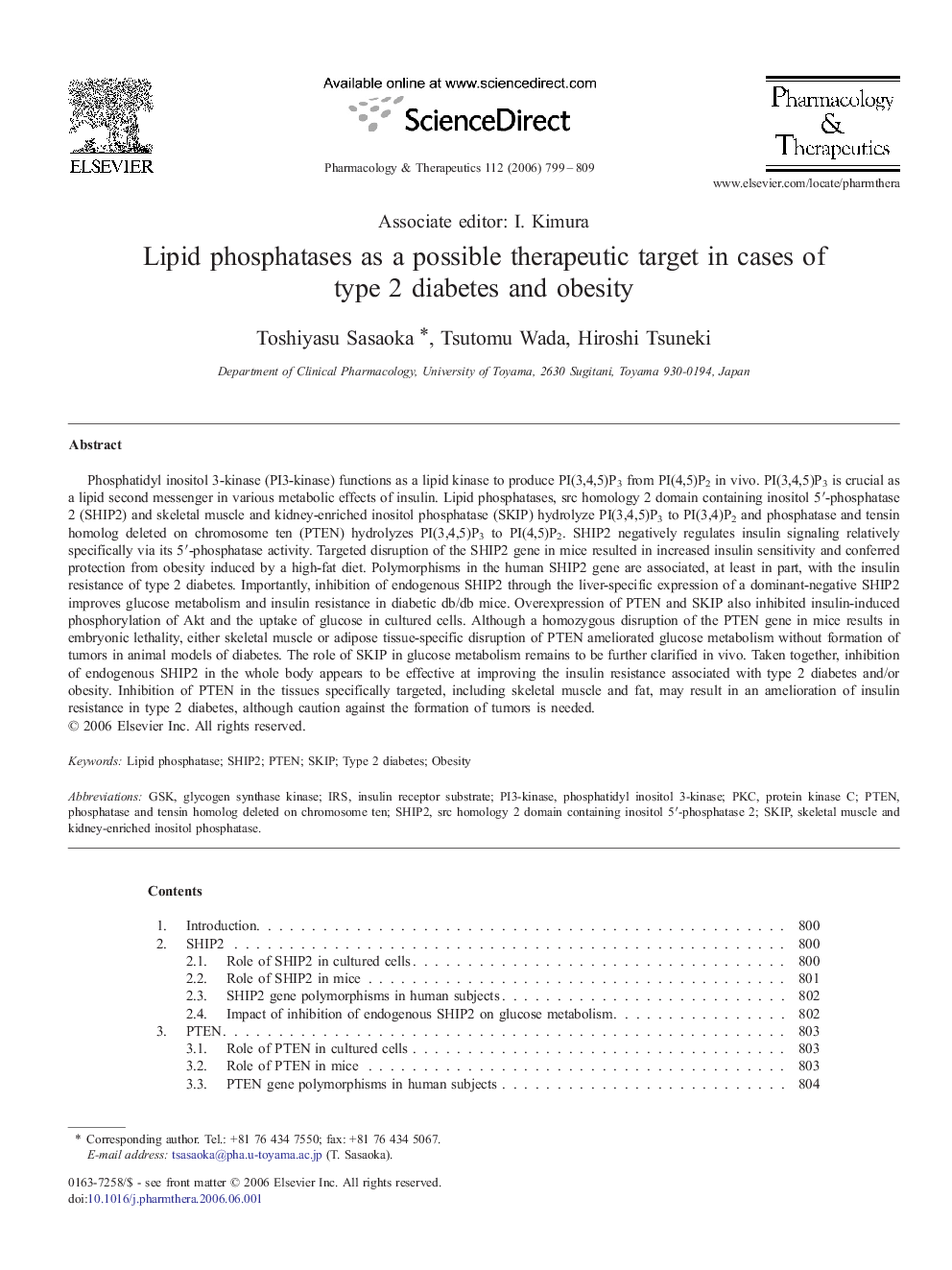| Article ID | Journal | Published Year | Pages | File Type |
|---|---|---|---|---|
| 2564041 | Pharmacology & Therapeutics | 2006 | 11 Pages |
Phosphatidyl inositol 3-kinase (PI3-kinase) functions as a lipid kinase to produce PI(3,4,5)P3 from PI(4,5)P2 in vivo. PI(3,4,5)P3 is crucial as a lipid second messenger in various metabolic effects of insulin. Lipid phosphatases, src homology 2 domain containing inositol 5′-phosphatase 2 (SHIP2) and skeletal muscle and kidney-enriched inositol phosphatase (SKIP) hydrolyze PI(3,4,5)P3 to PI(3,4)P2 and phosphatase and tensin homolog deleted on chromosome ten (PTEN) hydrolyzes PI(3,4,5)P3 to PI(4,5)P2. SHIP2 negatively regulates insulin signaling relatively specifically via its 5′-phosphatase activity. Targeted disruption of the SHIP2 gene in mice resulted in increased insulin sensitivity and conferred protection from obesity induced by a high-fat diet. Polymorphisms in the human SHIP2 gene are associated, at least in part, with the insulin resistance of type 2 diabetes. Importantly, inhibition of endogenous SHIP2 through the liver-specific expression of a dominant-negative SHIP2 improves glucose metabolism and insulin resistance in diabetic db/db mice. Overexpression of PTEN and SKIP also inhibited insulin-induced phosphorylation of Akt and the uptake of glucose in cultured cells. Although a homozygous disruption of the PTEN gene in mice results in embryonic lethality, either skeletal muscle or adipose tissue-specific disruption of PTEN ameliorated glucose metabolism without formation of tumors in animal models of diabetes. The role of SKIP in glucose metabolism remains to be further clarified in vivo. Taken together, inhibition of endogenous SHIP2 in the whole body appears to be effective at improving the insulin resistance associated with type 2 diabetes and/or obesity. Inhibition of PTEN in the tissues specifically targeted, including skeletal muscle and fat, may result in an amelioration of insulin resistance in type 2 diabetes, although caution against the formation of tumors is needed.
